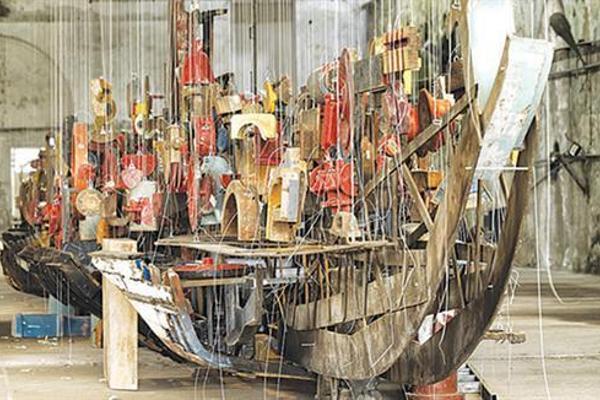Pavilion of Turkey inaugurated in Venice
ISTANBUL


Darzanà, a project about frontier infringement and hybridity, challenges the increasing confinement within the borders of religion, language, race, nationality, ethnicity and gender. The project highlights the common cultural and architectural heritage shared between the arsenals of Istanbul and Venice.
For the Biennale Architettura 2016, the vessel Baştarda was constructed out of abandoned materials found in the old dockyard of Istanbul and transported to Venice to represent a new connection in Mediterranean.
Turkey’s pavilion, coordinated by the Istanbul Foundation for Culture and Arts (İKSV), is located at the Sale d’Armi, Arsenale.
Curated by Feride Çiçekoğlu, Mehmet Kütükçüoğlu and Ertuğ Uçar, with curatorial collaborators Cemal Emden and Namık Erkal, the exhibition team of Darzanà consists of Hüner Aldemir, Caner Bilgin, Hande Ciğerli, Gökçen Erkılıç, Nazlı Tümerdem and Yiğit Yalgın.
Darzanà means dockyard but is a hybrid word, like the Turkish word tersane and the Italian word arsenale. These words are derived or distorted from the same root, the Arabic dar as-sina’a (place of industry).
Similar to Darzanà, Baştarda is also a hybrid word. Derived from bastardo, Baştarda is a cross between a galley and a galleon and is propelled by oars and sails. As a symbol of Mediterranean hybridity, Baştarda creates a bridge between the two shipyards, one left to rot away in the megacity of Istanbul, the other springing to life only at certain times of the year in the museum-city that is Venice.
